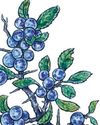How did the character of this inoffensive little creature of meadow and garden become cruelly impugned, wonders Ian Morton

The Oxford English Dictionary gives two definitions: ‘1. A small insectivorous mammal resembling a mouse with a long pointed snout and tiny eyes; 2. A bad-tempered or aggressively assertive woman.’ The two are difficult to equate, so why the villification of a small mammal so timorous that the shock of being picked up—or even thunder—may kill it?
Shakespeare established for posterity the shrew as a woman of difficult disposition, but he was only reiterating a long-held tradition that condemned the animal as venomous and equated it with a tempestuous female. Folklorist Prof Jan harold Brunvand has traced more than 400 versions of a shrewish woman tamed in male-dominated societies in which females must be compelled into compliance.
The denigration of the shrew itself as a nasty little creature dates from Ancient Greece, when Aristotle recorded that it was considered venomous. Roman writer Pliny offered no fewer than 18 cures for its bite, the most dramatic being to tear the shrew open and hold its carcass on the wound. In the 2nd century, Roman scribe Aelian noted the belief that mere contact with a shrew would render horses and cattle lame and that ‘every beast of burden dreads the shrew-mouse’. Conversely, the Ancient egyptians revered the creature and accorded it a ritual burial.
Diese Geschichte stammt aus der September 12, 2018-Ausgabe von Country Life UK.
Starten Sie Ihre 7-tägige kostenlose Testversion von Magzter GOLD, um auf Tausende kuratierte Premium-Storys sowie über 8.000 Zeitschriften und Zeitungen zuzugreifen.
Bereits Abonnent ? Anmelden
Diese Geschichte stammt aus der September 12, 2018-Ausgabe von Country Life UK.
Starten Sie Ihre 7-tägige kostenlose Testversion von Magzter GOLD, um auf Tausende kuratierte Premium-Storys sowie über 8.000 Zeitschriften und Zeitungen zuzugreifen.
Bereits Abonnent? Anmelden

Kitchen garden cook - Apples
'Sweet and crisp, apples are the epitome of autumn flavour'

The original Mr Rochester
Three classic houses in North Yorkshire have come to the market; the owner of one inspired Charlotte Brontë to write Jane Eyre

Get it write
Desks, once akin to instruments of torture for scribes, have become cherished repositories of memories and secrets. Matthew Dennison charts their evolution

'Sloes hath ben my food'
A possible paint for the Picts and a definite culprit in tea fraud, the cheek-suckingly sour sloe's spiritual home is indisputably in gin, says John Wright

Souvenirs of greatness
FOR many years, some large boxes have been stored and forgotten in the dark recesses of the garage. Unpacked last week, the contents turned out to be pots: some, perhaps, nearing a century old—dense terracotta, of interesting provenance.

Plants for plants' sake
The garden at Hergest Croft, Herefordshire The home of Edward Banks The Banks family is synonymous with an extraordinary collection of trees and shrubs, many of which are presents from distinguished friends, garnered over two centuries. Be prepared to be amazed, says Charles Quest-Ritson

Capturing the castle
Seventy years after Christian Dior’s last fashion show in Scotland, the brand returned under creative director Maria Grazia Chiuri for a celebratory event honouring local craftsmanship, the beauty of the land and the Auld Alliance, explains Kim Parker

Nature's own cathedral
Our tallest native tree 'most lovely of all', the stately beech creates a shaded environment that few plants can survive. John Lewis-Stempel ventures into the enchanted woods

All that money could buy
A new book explores the lost riches of London's grand houses. Its author, Steven Brindle, looks at the residences of plutocrats built by the nouveaux riches of the late-Victorian and Edwardian ages

In with the old
Diamonds are meant to sparkle in candlelight, but many now gather dust in jewellery boxes. To wear them today, we may need to reimagine them, as Hetty Lintell discovers with her grandmother's jewellery